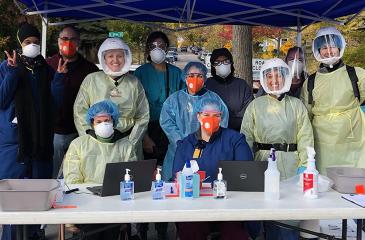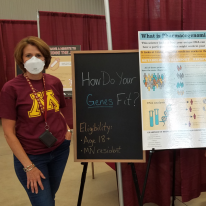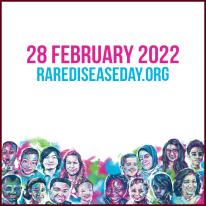Simply put, I’m a big fan of the work that they do and am always pleased when we are able to let more people know about it. Their COVID-19 work has been an excellent example of how they are able to positively impact their community. Since March 2020, CUHCC has:
- Tested 2,620 patients for COVID,
- Provided 9,603 doses of vaccine to CUHCC patients, neighbors, and staff,
- Gave an additional 800 vaccinations at community events,
- Hosted eight vaccination events at CAPI USA, a refugee/immigrant service organization located in Brooklyn Center,
- Held outreach vaccination events at community sites like churches and neighborhood grocery stores.
CUHCC doesn’t just serve its community, it is part of it. It invites it in. It goes out into it when it cannot come to them. It takes hundreds of these steps, small and large, to build trust and, with that, better community health.
Driving Innovation and Discovery
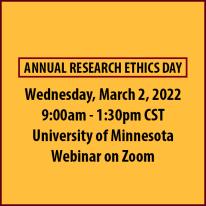
Annual Research Ethics Day Conference - Deepening Engagement and Equity in Research: Next Steps in Research Ethics
Join interdisciplinary experts on March 2 to hear how engagement and equity will shape the future of research ethics. National leaders will discuss the challenges and benefits of enhanced engagement with historically underserved communities and how engagement can advance more equitable outcomes in precision medicine, environmental and global health, and neuroscience
Advancing Interprofessional Education & Training
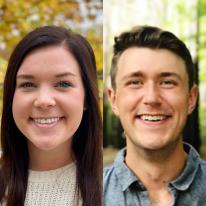
Interprofessional Internship Spotlight: Welia Health
Welia Health recently shifted to a private not-for-profit 501c3 organization. Nathan Evans, BS, from the School of Public Health and Hannah Saalsaa, BS, from the Medical School are conducting a community health needs assessment and facilitating discussions surrounding implementation strategies to meet identified community health needs.
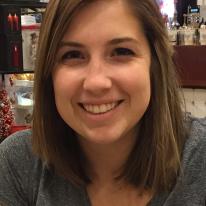
Students: What Do You Enjoy Most About Interprofessional Activities?
“I have always enjoyed working in teams, whether in sports, music, or academics. I find it fascinating how someone else can fill in gaps of knowledge or skills I may have to reach a common goal. Being a part of many sports teams, the teams that have been the most fun and successful have always had good team chemistry: everyone knew their role, there was effective communication, and everyone had different skill sets. This relates explicitly to interprofessional collaboration and what a health care team needs to be successful.” - Sara Dasler, speech language pathology graduate student
Partnering With Communities
It’s not too late to reserve space at the Driven to Discover (D2D) Research Facility this summer. D2D is for faculty, students and staff U-wide to recruit from among two million fairgoers for on-site human-subjects research. Average enrollment in 2019 was 162 participants per shift; 2021 average was 112 participants per shift. Funding is available for eligible MCC investigators for the 2022 fair. A ten-minute application is due Feb. 28. For more information, contact [email protected].
The College of Pharmacy and the Medical School will jointly host a virtual Rare Disease Day conference on Feb. 25. This year's event "Successes & Challenges in Transition of Care for Rare Disorders" includes a panel discussion and keynotes from Alex Boucher, MD, professor of pediatrics, Sam Goldfarb, MD, professor of pediatrics, and Linda Krach, MD, a physician at Gillette Children's Specialty Healthcare.
U-Wide Events and Opportunities
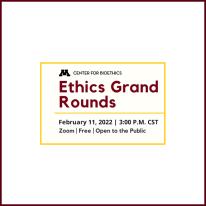
The Minnesota Assisted Suicide Bill: Bad Medicine, Bad Ethics, Bad Law
The Minnesota End-of-Life Option Act was reintroduced to the MN state legislature in early 2021 and was modeled after the 1994 Oregon Death with Dignity Act. Join the Center for Bioethics on Feb. 11 at this second panel discussion of the two-part series on the current bill under review and hear from national advocates for disability rights and racial equity, a clinician, a bioethicist, and a local legislator.

Turning the Tide: Neuroscience, Spirituality and My Path Toward Emotional Health
Join the Earl E. Bakken Center for Spirituality & Healing at “Turning the Tide: Neuroscience, Spirituality and My Path Toward Emotional Health” on Feb. 24. During this data-driven presentation, Sylvia Bartley, PhD, will share how she manages her emotional health with mindful practices based on her experience with neuroscience and spirituality.
